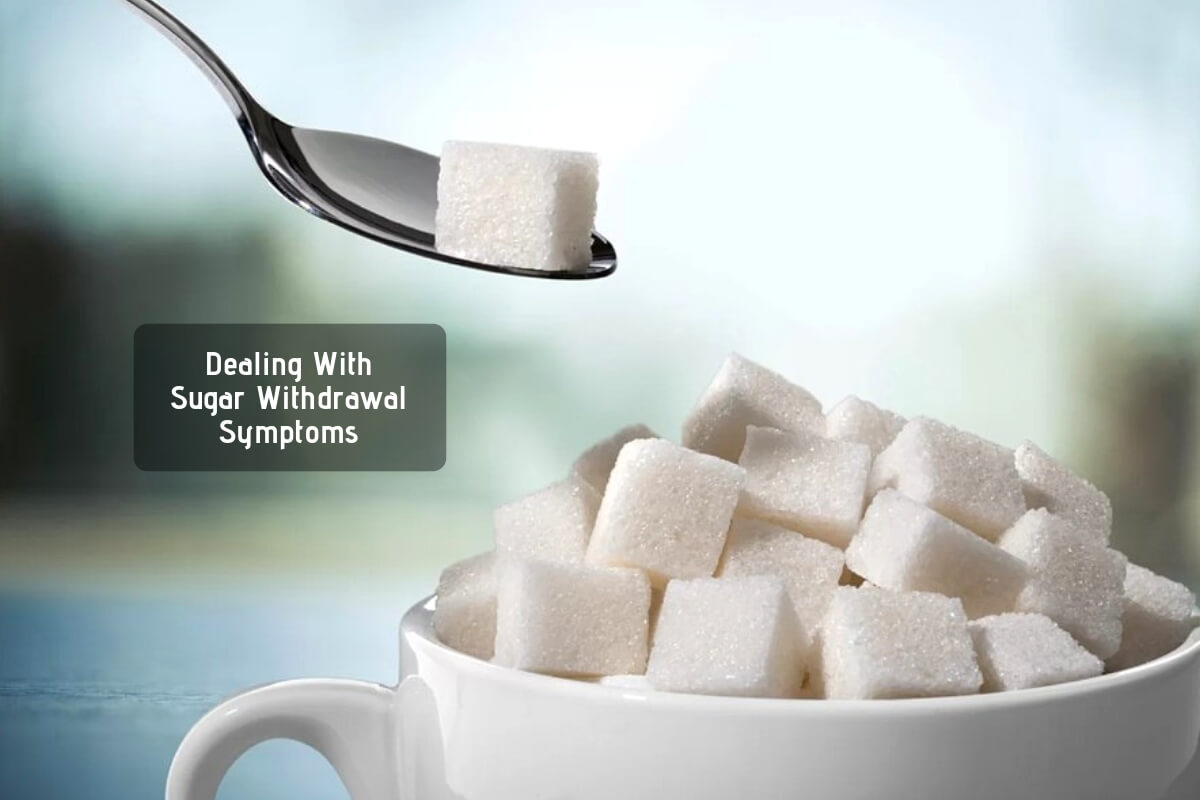Navigating the Maze: Symptoms of Sugar Withdrawal Explained
In today’s world, sugar is practically everywhere, making it a challenge to escape its sweet grasp. Whether you’re looking to kick your sugar habit or have recently reduced your sugar intake, you might find yourself facing an unexpected hurdle – sugar withdrawal. Understanding these symptoms is the first step towards conquering them.
Common Symptoms of Sugar Withdrawal

symptoms of sugar withdrawal
Sugar withdrawal isn’t unlike other forms of withdrawal. As your body adjusts to lower sugar intake, it can react in various ways. Here are the most common symptoms of sugar withdrawal:
1. Headache:
One of the most frequently reported symptoms is a pounding headache. This can be attributed to changes in blood sugar levels and neurotransmitter activity.
2. Fatigue:
Feeling unusually tired or lethargic is another hallmark of sugar withdrawal. Your body is accustomed to sugar’s quick energy boost, and without it, you may experience fatigue.
3. Cravings:
Intense sugar cravings can be relentless during the initial phases of withdrawal. Your body is signaling its desire for that familiar sugar rush.
Natural Ways to Alleviate Sugar Withdrawal
While sugar withdrawal symptoms can be challenging, there are several natural strategies to help alleviate discomfort and support your journey toward reduced sugar intake:
1. Staying Hydrated:
Drinking plenty of water can help flush out toxins and aid in reducing headaches and fatigue.
2. Consuming Whole Foods:
Opt for a diet rich in whole, unprocessed foods like fruits, vegetables, lean proteins, and whole grains. These provide sustained energy without the sugar spikes.
3. Getting Regular Exercise:
Physical activity can boost your mood and reduce cravings by releasing endorphins, the body’s natural “feel-good” chemicals.
4. Managing Stress:
High-stress levels can trigger sugar cravings. Practice stress-reduction techniques like deep breathing, meditation, or yoga.
5. Gradual Sugar Reduction:
Rather than going cold turkey, consider gradually reducing sugar in your diet. This can make the transition smoother and reduce the severity of withdrawal symptoms.
Coping with Sugar Cravings
Sugar cravings can be relentless, but there are strategies to help you cope and prevent relapse:
1. Healthy Snack Alternatives:
Keep nutritious snacks on hand, like nuts, seeds, or fruit, to satisfy your sweet tooth without added sugars.
2. Mindful Eating:
Pay attention to your body’s hunger cues and eat mindfully. This can help you distinguish between true hunger and emotional cravings.
3. Support Groups:
Consider joining a support group or seeking encouragement from friends and family who share your goal of reducing sugar intake.
4. Sugar-Free Recipes:
Explore sugar-free recipes that allow you to enjoy your favorite treats without the added sugars. There are many delicious alternatives available.
When to Seek Professional Help
While most individuals can successfully manage sugar withdrawal on their own, there are situations where seeking professional help is essential. Here’s when it’s crucial to consult a healthcare provider:
1. Severe Symptoms:
If you experience severe symptoms like uncontrollable mood swings, intense depression, or prolonged insomnia, it’s advisable to seek professional assistance.
2. Pre-existing Health Conditions:
Individuals with diabetes, eating disorders, or other underlying health conditions should consult their healthcare provider before making significant dietary changes.
3. Medication Interactions:
If you’re on medication that affects blood sugar levels, consult your doctor to ensure a safe and smooth transition to a lower-sugar diet.
FAQs on the topic of sugar withdrawal:
1. FAQ: What causes sugar withdrawal symptoms?
Answer: Sugar withdrawal symptoms are primarily caused by the abrupt reduction of sugar intake, leading to changes in blood sugar levels and neurotransmitter activity.
2. FAQ: Are sugar withdrawal symptoms the same for everyone?
Answer: No, the severity and duration of sugar withdrawal symptoms can vary from person to person based on factors such as their prior sugar consumption and individual physiology.
3. FAQ: How long do sugar withdrawal symptoms typically last?
Answer: Sugar withdrawal symptoms often begin a few days after reducing sugar intake and can last anywhere from a few days to a couple of weeks.
4. FAQ: Can sugar withdrawal symptoms be dangerous?
Answer: While sugar withdrawal symptoms can be uncomfortable, they are generally not dangerous. However, severe symptoms may require medical attention.
5. FAQ: What are some natural ways to alleviate sugar withdrawal symptoms?
Answer: Natural methods to alleviate sugar withdrawal include staying hydrated, consuming whole foods, getting regular exercise, managing stress, and gradually reducing sugar intake.
6. FAQ: How can I cope with intense sugar cravings during withdrawal?
Answer: Coping strategies for sugar cravings include having healthy snack alternatives on hand, practicing mindful eating, seeking support from groups or loved ones, and exploring sugar-free recipes.
7. FAQ: Should I consult a healthcare provider before reducing sugar intake?
Answer: Individuals with pre-existing health conditions, like diabetes, or those on medications affecting blood sugar should consult a healthcare provider before making significant dietary changes.
8. FAQ: What are the long-term benefits of reducing sugar intake?
Answer: Long-term benefits of reducing sugar intake include improved energy levels, better weight management, reduced risk of chronic diseases, and enhanced overall health.
9. FAQ: Are sugar cravings a sign of addiction?
Answer: Intense sugar cravings can be a sign of sugar addiction, which is a recognized phenomenon. Reducing sugar gradually can help break this addiction.
10. FAQ: Can I enjoy sweet treats in moderation after sugar withdrawal?
Answer: Yes, moderation is key. Once you’ve successfully managed sugar withdrawal, occasional indulgence in sweet treats can be enjoyed without triggering cravings or adverse effects.
Conclusion
In the journey to reduce sugar intake and manage sugar withdrawal symptoms, one thing becomes clear – it’s not just about eliminating a sweet ingredient; it’s about reclaiming control over your health and well-being. The discomfort of sugar withdrawal is a temporary hurdle on the path to a more balanced and energized life.




